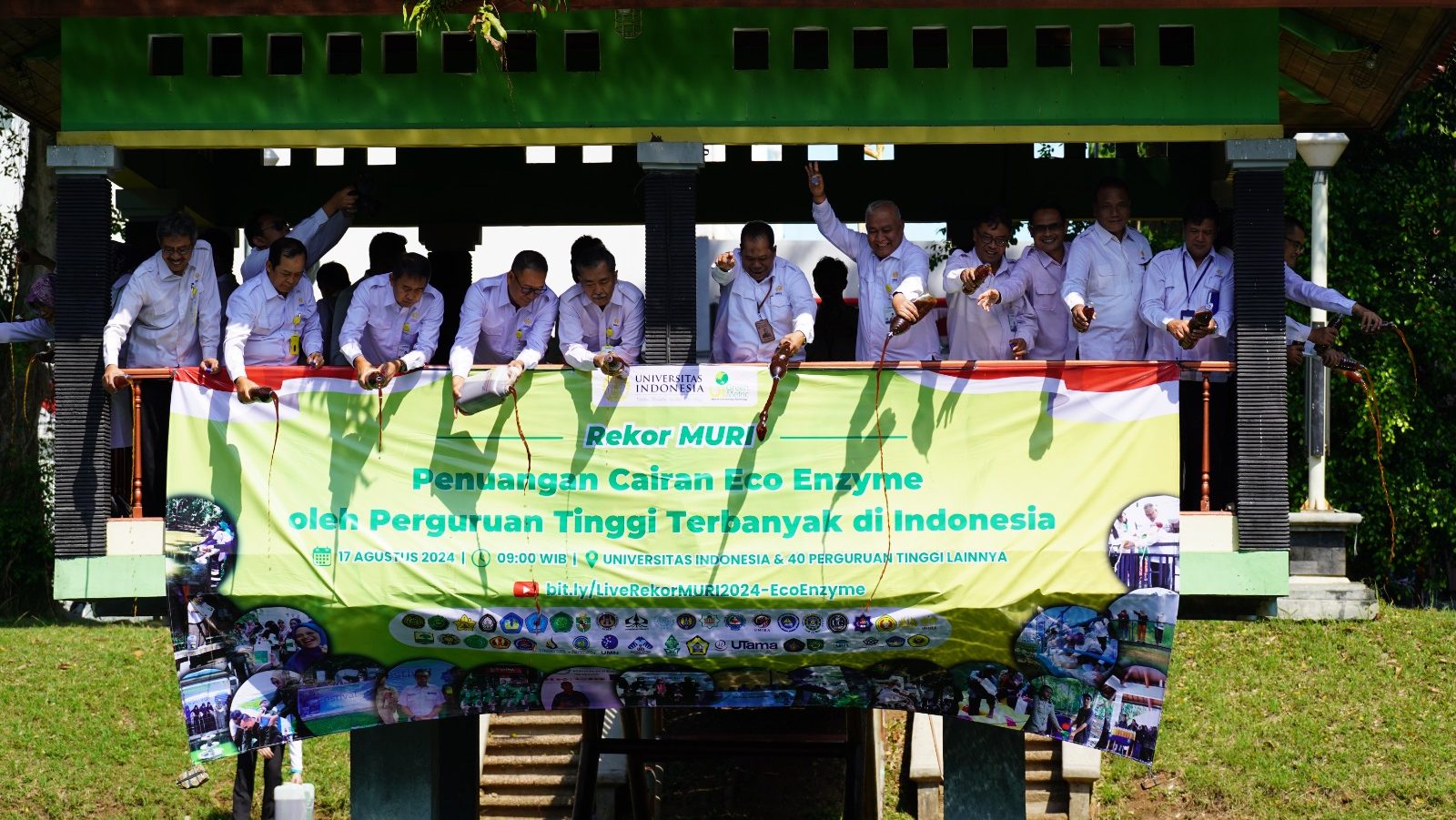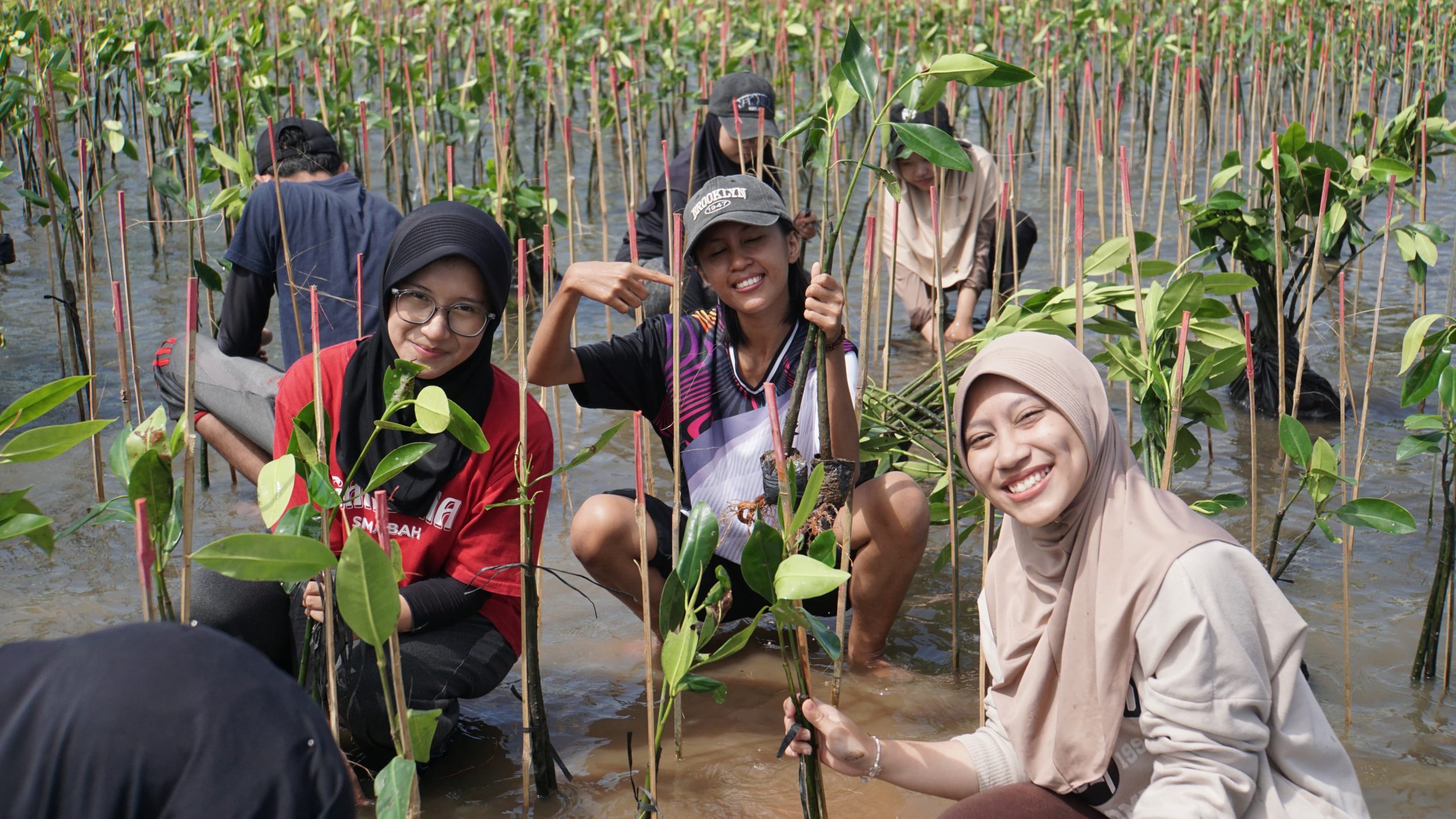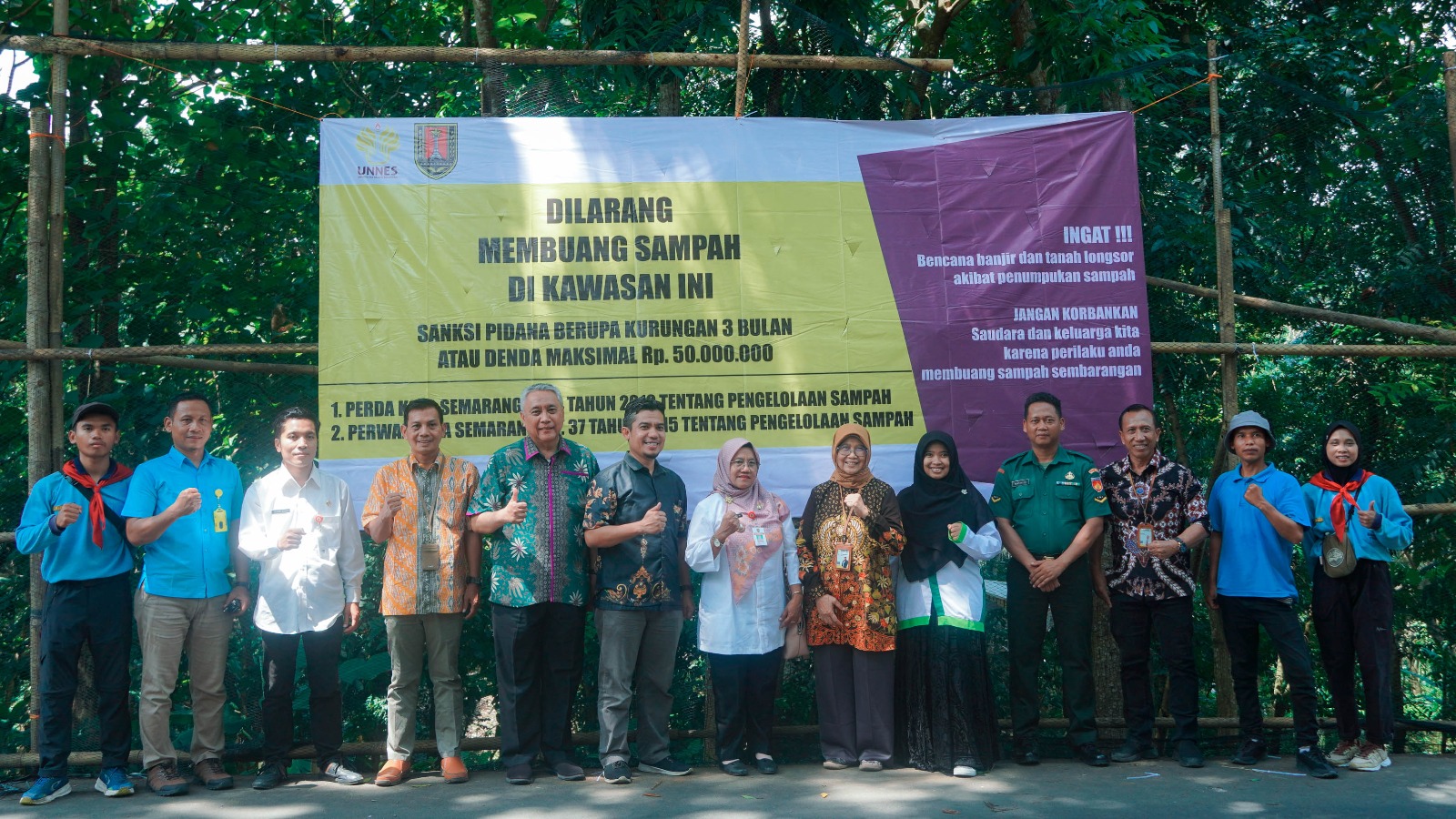The commitment of Universitas Negeri Semarang (UNNES) as a conservation-oriented university was once again demonstrated through its participation in a joint action initiated by UI GreenMetric. This event, recorded in the Indonesian World Records Museum (MURI), was titled “The Most Eco-Enzyme Liquid Dispensing by Universities in Indonesia” and was part of the 2024 Eco-Enzyme Festival.
The event occurred in conjunction with Indonesia’s 79th Independence Day celebration on August 17, 2024, with 46 universities participating. More than 20,928 liters of eco-friendly enzyme liquid were released into lakes and rivers on each university campus, reflecting a collective commitment among Indonesian universities to preserve the environment and enhance local water quality.
For its part, UNNES produced and dispensed 1,350 liters of eco-enzyme into the UNNES Embung. This eco-enzyme, derived from fermented organic waste such as fruit and vegetable peels, was contributed from various university units: 1,000 liters from the faculties and graduate school, and 350 liters from LP2, LP3, BOAB, DSIH, Archives, Library, and the Conservation Office, each providing 50 liters.
The eco-enzyme dispensing ceremony at UNNES Embung was attended by the Rector, Vice-Rectors, Directors, Heads of Offices, Faculty Deans, the Graduate School Director, Heads of Institutes, and the Head of Conservation.
Beyond enhancing water quality, UNNES’s eco-enzyme serves as a natural filtering agent and can also be used as an alternative to carbolic acid, a natural disinfectant, and a pesticide for plants. Consequently, eco-enzyme use reduces the release of toxic chemicals that could pollute the environment, aligning with Sustainable Development Goal (SDG) 14, which focuses on conserving underwater and marine ecosystems.
Dr. Junaidi, Acting Head of UI GreenMetric, emphasized that such initiatives are vital for maintaining water quality and supporting the environmental carrying capacity in surrounding areas, minimizing flood risk, and ensuring water supply during dry seasons. He expressed hope that the enzyme-dispensing initiative could be repeated for a lasting impact.
UNNES Rector, Prof. S. Martono, affirmed that UNNES’s participation is a tangible manifestation of the university’s commitment to environmental conservation. He highlighted that this initiative also strengthens the character and awareness of students, faculty, and the local community regarding the importance of ecological preservation.
Prof. Martono, The UNNES Rector, reassured the audience of UNNES’s unwavering commitment to environmental sustainability and ecosystem welfare, particularly concerning water resource conservation. His words serve as an inspiration for others to follow suit.
Through this contribution, UNNES aspires to set an example for other universities in their environmental conservation efforts, demonstrating that even small steps can profoundly impact the sustainability of larger ecosystems.




